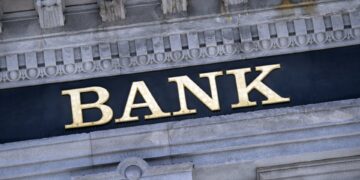Taipei, Feb. 8 (CNA) Four foreign banks have been punished by Taiwan’s central bank for helping companies speculate in the foreign exchange market as the Taiwan dollar was moving higher against the U.S. dollar, sparking an outcry among exporters.
In a statement Sunday, the central bank said it punished the four banks on Feb. 5 after finding through a bank exam in January that they helped grain companies engage with currency speculation through the trading of deliverable forwards.
Of the four — Deutsche Bank, ING Bank, Citibank, and the Australia and New Zealand Banking Group (ANZ) — the German bank faced the biggest penalty.
It had its permit to trade Taiwan dollar deliverable forwards (DF) and non-deliverable forwards (NDF) revoked and was prohibited from making forex derivative transactions for two years, the central bank said.
The Taipei branches of ING Bank and ANZ were barred from DF and NDF trading for nine months, while Citibank Taiwan was barred from DF trading for two months.
The penalties imposed on the four banks took effect Monday, the central bank said.
Citing the Regulations Governing Foreign Exchange Business of Banking Enterprises, the central bank said the penalties came after the four banks failed to fulfill their responsibility to “know your customer (KYC)” and certify their clients’ “actual needs.”
Two other foreign banks discovered irregularities in foreign exchange trading by grain company clients prior to the January bank exams and ended their business with the clients, and therefore were not penalized, the central bank said.
It did not identify the two foreign banks in the statement.
The penalties came at a time when the Taiwan dollar was hitting its highest level against the U.S. dollar in more than 23 years, pushed higher by foreign fund inflows as the world’s central banks pumped funds into markets to keep them liquid during the COVID-19 crisis.
In 2020, the Taiwan dollar soared 5.6 percent against the greenback and gained another 0.34 percent in January.
The central bank has intervened in recent trading sessions to prop up the U.S. dollar, offset the impact of large foreign fund inflows, and prevent the Taiwan dollar from appreciating more.
The central bank said it intervened to stabilize the market because of “large and sudden capital flows that caused excessive volatility.”
Due to the central bank’s intervention, Taiwan’s forex reserves have hit a record high, reaching US$541.48 billion by the end of January, up US$11.57 billion from a month earlier.
The maneuvers could draw the attention of the United States, based on the semi-annual Report on Macroeconomic and Foreign Exchange Policies of Major Trading Partners released by the U.S. Treasury Department in mid-December 2020.
The report included Taiwan on a list of economies that the U.S. will monitor for currency manipulation, the first time Taiwan had been included on the watch list since 2017.
“Taiwan should allow the new Taiwan dollar to appreciate to help reduce its large and durable external surpluses,” the U.S. Treasury said in the report.







